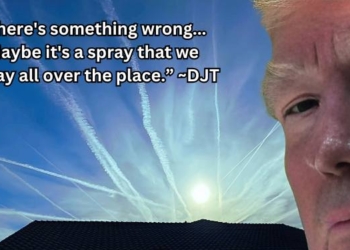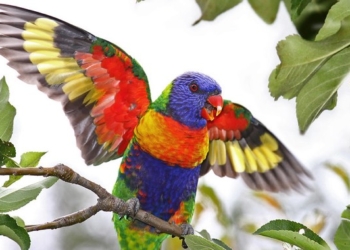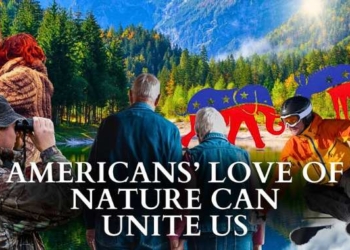
By Jon Queally | Common Dreams
A new landmark United Nations report on biodiversity set for release on Monday will say that a perilous and miserable future awaits the natural world and human civilization unless we rapidly bring an end to humanity's destructive “business as usual” approach to the economy, food production, and energy usage.
Signaling the need for urgent “transformative changes” in order to save humanity and the natural world, the 1,800-page report and a separate executive summary will represent the first time the UN has published such an exhaustive report on the state of Nature.
As Agence France-Presse, which obtained a draft of the conclusions, reports Saturday that “The bombshell Summary for Policymakers… makes for very grim reading.”
According to AFP's review of the draft report and the summary, the documents “paint a picture of widespread destruction wrought by man, some of it irreparable.”
While the final report is due out May 6, aspects of what the study will say have been disclosed via drafts reported on by the press in recent weeks and public statements by officials and researchers involved in its creation.
As Common Dreams reported last month, at last one of the overarching findings of the report is that human destruction of natural systems has put the world on a path towards a mass extinction that could wipe out over a million species.
Robert Watson, chair of the Intergovernmental Science-Policy Platform on Biodiversity and Ecosystem Services (IPBES), which authored the report with input from more than 400 scientists worldwide, told AFP ahead of the weekend meeting where the drafts will be adopted that while there are many direct drivers undermining Nature's systems, the “number of people in the world and their growing ability to consume” are the two biggest indirect drivers of biodiversity loss and the climate crisis.
According to AFP:
The new report details how humans are undermining Earth's capacity to produce fresh water, clean air, and productive soil, to name a few “ecosystem services.”
The direct causes of Nature's degradation—in order of importance—are shrinking habitat and land-use change, hunting for food or illicit trade in body parts, climate change, pollution, and predatory or disease-carrying alien species such as rats, mosquitoes, and snakes.
“The evidence is incontestable,” said Watson during a meeting with scientists and delegates at the UN biodiversity conference on Saturday in Paris. “Our destruction of biodiversity and ecosystem services has reached levels that threaten our well-being at least as much as human-induced climate change.”
Our children and grandchildren will ask us: what the hell did you do to our home?
The answer is simple: We got greedy, so we burned the life raft@AFP’s exclusive on the new UN #biodiversity assessment that shows the havoc we’re wreaking on Earth https://t.co/w4nMxB9hnl
— Patrick Galey is on @patrickgaley.bsky.social (@patrickgaley) May 3, 2019
Speaking separately to the Guardian ahead of the conference, Watson said, “There is no question we are losing biodiversity at a truly unsustainable rate that will affect human wellbeing both for current and future generations. We are in trouble if we don't act, but there are a range of actions that can be taken to protect nature and meet human goals for health and development.”
On the economic side, the report will call out GDP (gross domestic product) as a failed metric for calculating the health of economies, highlight the impact that financial inequality is having on the health of the planet, and will also examine so-called “market reforms” designed to curtail tax havens and the corruption they facilitate across the world.
The report will also lay out competing scenarios for the future and AFP notes that while more optimistic versions appear “inviting,” the one presented as “business as usual”—indicating little change from the way things are now—would “plunge the planet into a nightmarish, downward spiral of conflict, growing inequality and continuing degradation of Nature.”
Steven Osofsky, a professor of wildlife health and health policy at the Cornell College of Veterinary Medicine and expert on biodiversity, meanwhile, said the while the situation is grim there is still time to act if humanity can face the seriousness of the challenge and act accordingly.
“Anyone who denies that we are in a human-induced extinction crisis is either lying or not paying attention,” said Osofsky. “But I have to believe it's not too late — there are prospects for hope in bringing together sectors that have historically been antagonistic.”
“From how we feed the world, to how we generate energy, to how we educate the next generation (especially women and girls),” he added, “there are solutions to the pressures currently impacting global biodiversity and the natural systems humanity (perhaps ironically) ultimately depends upon for survival.”
















